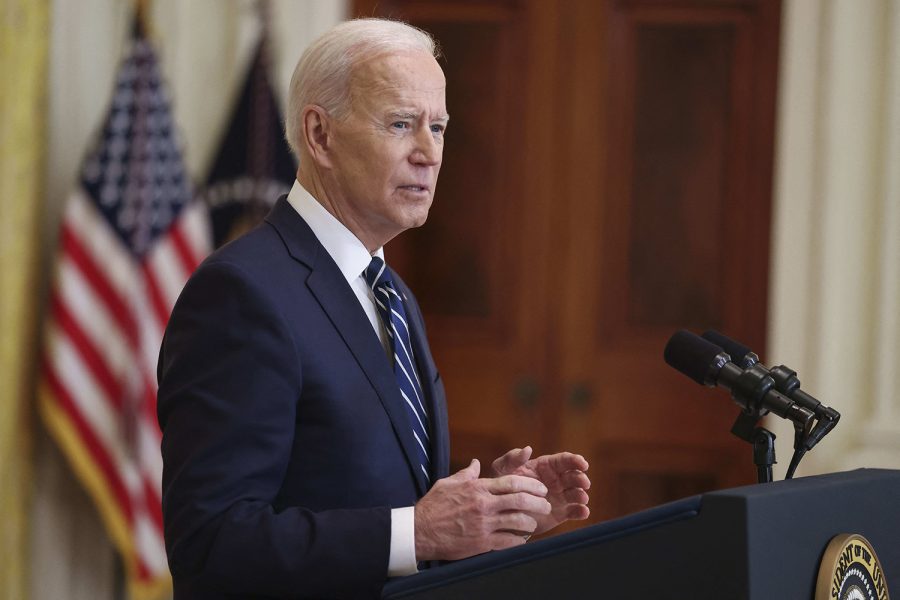Opinion | The economics of refugee resettlement
Iowa embracing refugees is a win for the state and refugees.
President Joe Biden speaks during the first formal press conference of his presidency in the East Room of the White House on Thursday, March 25, 2021, in Washington, D.C.
March 29, 2021
Iowa must embrace refugees, as immigration analysts predict that the number of refugees in Iowa will gradually increase in the coming years of the Biden presidency.
If you couldn’t tell, I am very excited about this.
By accepting more refugees, Iowa is not only providing an opportunity for people to escape from violence, but is also increasing its own economic fortunes as refugees provide a significant boost to the state’s economy.
Contrary to popular belief, refugees are productive members of society.
A 2017 report from the HHS explains that refugees contributed an eye-boggling $269.1 billion through taxes to all levels of government between 2005 and 2014.
The same report found that refugees brought in $63 billion more than they cost to bring in, meaning the U.S. actually turns a profit when it allows more refugees in.
This is due to a myriad of factors. One of the more interesting ones is entrepreneurship.
Migrants tend to be much more entrepreneurial compared to native populations. While they only make up 15 percent of the population, migrants make up 25 percent of all entrepreneurs. This is crucial to job growth, as it is estimated that entrepreneurs create 1.5 million jobs a year.
Now, you may have noticed that these figures are talking about migrants rather than refugees, and you would be correct.
However, most studies show that the effects migrants have on the economy also translate to the effects refugees have on the economy.
The entrepreneurial drive that refugees bring could be huge for Iowa.
New businesses opened by refugees could potentially play a role in kick starting our post-pandemic economic recovery as unemployment rose to about 3.7 percent in March 2020, a notch above the 2.7 percent unemployment rate pre-pandemic. It’s stayed at about the same — the Iowa Workforce Development reported a 3.6 percent unemployment rate for February. Refugees make sure the Iowa economy not only survives but thrives.
Of course, some individuals are not thrilled about refugee resettlement.
Anti-immigrant activists argue that refugees are responsible for a surge in crime and terrorism. This is obviously not true.
The Cato Institute elaborates that there is a one in 3.64 billion chance that an American will be killed by a refugee. To put this into context, you have a better chance of winning the Mega Millions.
More “sophisticated” critics contend that refugees have adverse effects on labor markets as an inundation of refugees shifts the labor supply curve to the right leading to the depreciation of wages as firms begin to hire cheaper labor.
What these critics fail to account for is the theory of induced demand.
While originally conceived to prove that building more car lanes increases congestion, induced demand can help elucidate why a rightward shift in the labor supply will not necessarily result in a decrease of wages, as firms begin to want more labor, shifting the labor demand curve to the right.
In fact, empirical evidence shows that, when there is an uptick in refugees — or immigrants in general-entering the workforce — wages for all workers, including low-skilled native workers actually increase, all but confirming that induced demand is happening in the labor market.
We should start to appreciate refugees and their contributions to bettering our country as they are the embodiment of the American ethos.
They are successful and productive members of society who contribute more than their fair share.
So no, refugees are not going to take your jobs and cut your wages. In fact, they just might hire you and raise your pay.
Columns reflect the opinions of the authors and are not necessarily those of the Editorial Board, The Daily Iowan, or other organizations in which the author may be involved.



